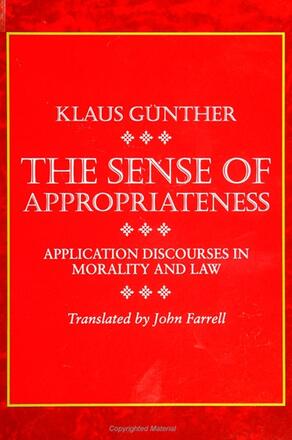
The Sense of Appropriateness
Application Discourses in Morality and Law
Alternative formats available from:
Description
Günther's book demonstrates that most objections to moral and legal principles are directed not against the validity of principles but against the manner of their application. If one distinguishes between the justification of a principle and its appropriate application, then the claim that the application of the principle in each individual case follows automatically from its universal justification proves to be a misunderstanding. Günther develops this distinction with the help of Habermas's discourse theory of morality. He then employs it to extend Kohlberg's theory of moral development and to defend this against Gilligan's critique. In the third and fourth parts of the book, Günther shows—in debate with Hare, Dworkin, and others—how argumentation on the appropriate application of norms and principles in morality and law is possible.
Klaus Günther is Professor of Law at the University of Frankfurt.
Reviews
"Does the justification of moral principle or rule of law justify its application to particular cases? This is the issue in Klaus Günther's The Sense of Appropriateness. It is handled with great skill and critical insight. This is an admirable performance which makes a serious advance in the Frankfurt approach to the study of rational practical discourse." — D. N. MacCormick, Center for Criminology and the Social and Philosophical Study of Law, The University of Edinburgh